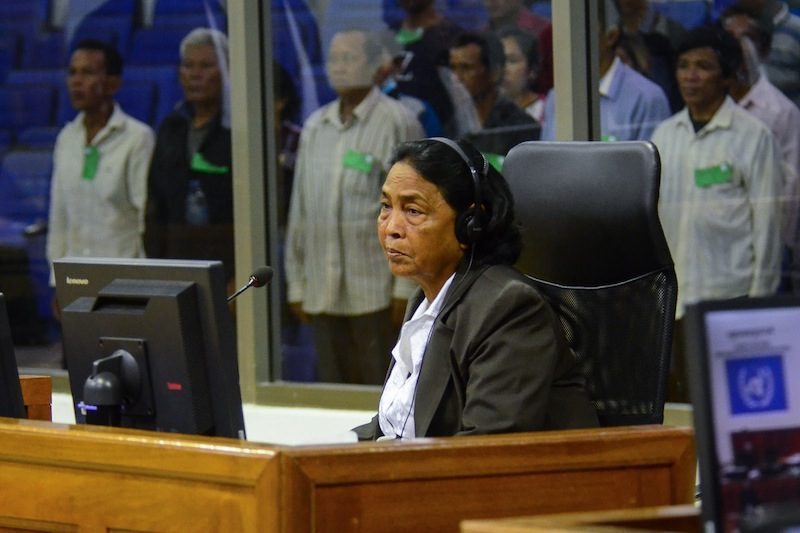After being forced to marry a man she disliked in almost every way, the latest civil party to testify at the Khmer Rouge tribunal said on Tuesday that the man who officiated at her wedding raped her after she rejected her husband’s advances to consummate their vows.
Just 23 at the time, the woman, identified only as 2-TCCP-274 by the court, recounted the horrifying result of her efforts to resist the man to whom she had been married.

During the first full day of hearings on forced marriages under the regime, she said that hours after their wedding—conducted alongside 13 other couples—her new husband complained to the local military chief that she refused to have sex with him.
“He was upset so he went out of the room and informed his military commander,” she said. “I disliked him and he didn’t try to console me or to comfort me at all. He simply wanted to have sex with me.”
The woman said she was raped by the chief, known as Pan, later that night after he summoned her for questioning about why she did not consummate the marriage.
“I resisted, but I failed, and he had a pistol,” she said. “I was afraid that I would be killed.”
The woman was told she would be “shot dead” if she shouted during the rape or did not agree to live with her husband. She later agreed to consummate their marriage, worried that they were being monitored by spies.
Although rape was considered a serious offense according to Khmer Rouge principles, the woman said she did not report what had happened because there was no one to report it to.
“If I were to tell someone then I myself would be dead,” she said. “Nobody could help me. He was a person in authority, who was there to challenge him?”
Marriages were initially only carried out by Khmer Rouge officials if both sides consented, she said. However, the regime soon began forcing men and women to wed, often notifying them just days or even hours before the staged ceremonies.
The woman who testified on Tuesday was married in 1978 after the death of her first husband, and gave birth to a baby girl later that year.
During testimony on Monday, she said she did not like the way her new husband looked, talked or behaved.
The woman said she was often told of cases where people who refused to marry disappeared, including her cousin, who she heard was taken away in a car belonging to her marriage officiant and raped and killed by three soldiers.
“She refused it one or two times and she was taken away and killed,” she said. “In the afternoon of the day she was killed, I noticed that somebody was wearing her shirt because I noticed that her name tag was on that shirt.”
The woman said she became separated from her husband after the Khmer Rouge was overthrown by Vietnamese forces in 1979, but that they began living together again three years later. Her husband has since died.




